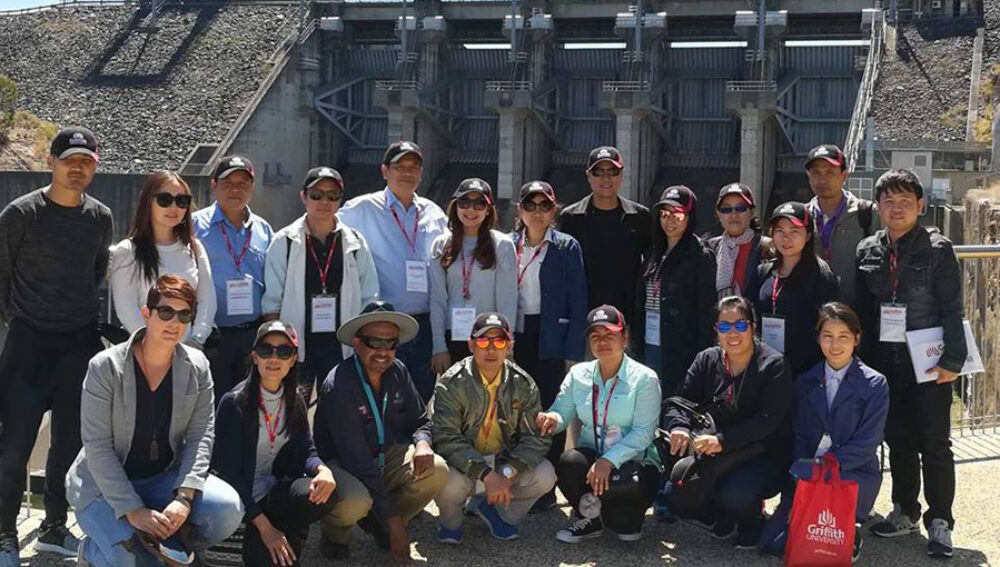During September, fifteen Lao nationals from the Faculty of Water Resources, National University of Laos and the Department of Water Resources, Ministry of Natural Resources and Environment are in Brisbane to participate in a short training program titled: ‘Enhancing Growth and Institutional Development through increasing expertise in water governance in Lao PDR’. The three week training program is funded by the Department of Foreign Affairs and Trade through the Australian Awards Fellowship program, implemented by Griffith University and facilitated by Dr Tapan Sarker and Dr Andrea Haefner from the Griffith Asia Institute, Griffith Business School. The aim of the program is to develop good practices in the transfer of explicit and implicit knowledge to professionals from Laos in the area of water governance.

A welcome ceremony was held for the Lao participants on Monday 11 September.
The Lao People’s Democratic Republic is one of the least develop nations in South-East Asia and it inhabits nearly 7 million people with the mighty Mekong and its many tributaries crossing the country and flowing along its border playing a central part in people’s lives. The water resources sector has an important role to play due to a high investment in hydropower developments and the transformation of the agriculture sector from a subsistence-based to a market-based system. Over the next five years, the Lao PDR will continue to face many challenges associated with the final stages of its economic adjustment; and the water sector will play a key role to support the growth of agriculture and natural resources based sectors; it will require structural policy changes; and new education and training systems.

Participants visit Mt Crosby Water Treatment Plant as part of the program.
The Mekong River system provides a unique example of the growing water security and sanitation issues impacting the opportunities for economic growth-led water governance and effective water resource management critical to water, food and energy security and environmental flows in the region. The main outputs of the three-week program are improved knowledge through lectures and fieldwork, greater awareness about Australia’s water governance, co-funding opportunities, and exchanges via expanded stakeholder networks with representatives from government, academia and environmental non-government organisations. Some of the highlights of the program include a participation in the River symposium; presentations and a field visit to the Wivenhoe Dam and Mt Cosby Treatment Facility organised by SEQ Water; a presentation by the Department of Natural Resources and Management from the Queensland Government and various presentations and workshops by academics from Griffith University, the University of Queensland and the Australian National University.
This article was written by Dr Andrea Haefner, Adjunct Research Fellow, Griffith Asia Institute.








